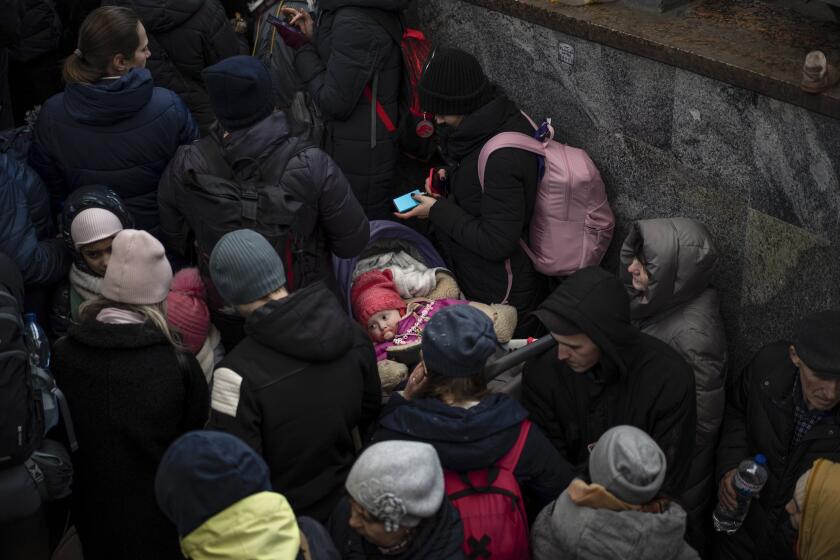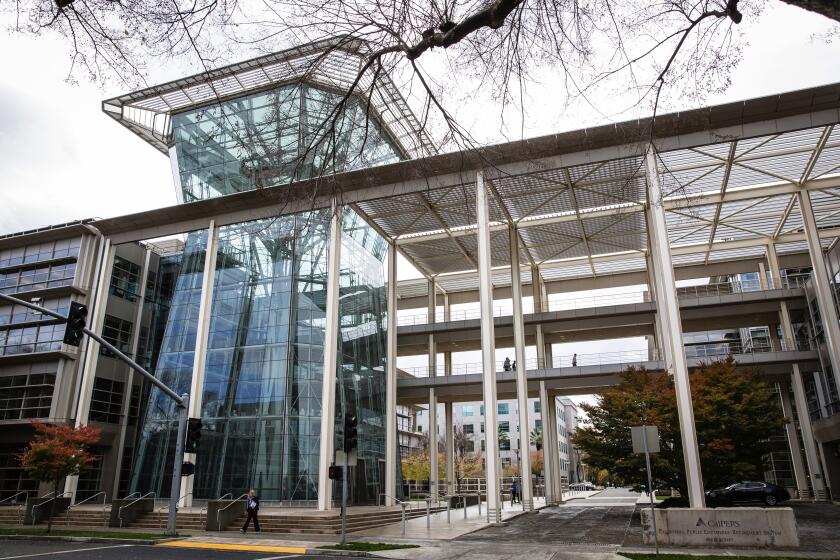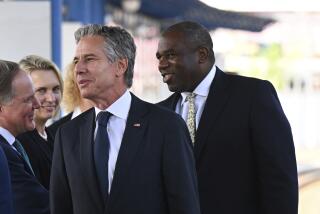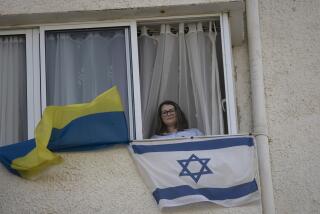Costa Mesa couple barely escape Ukraine with days-old newborn
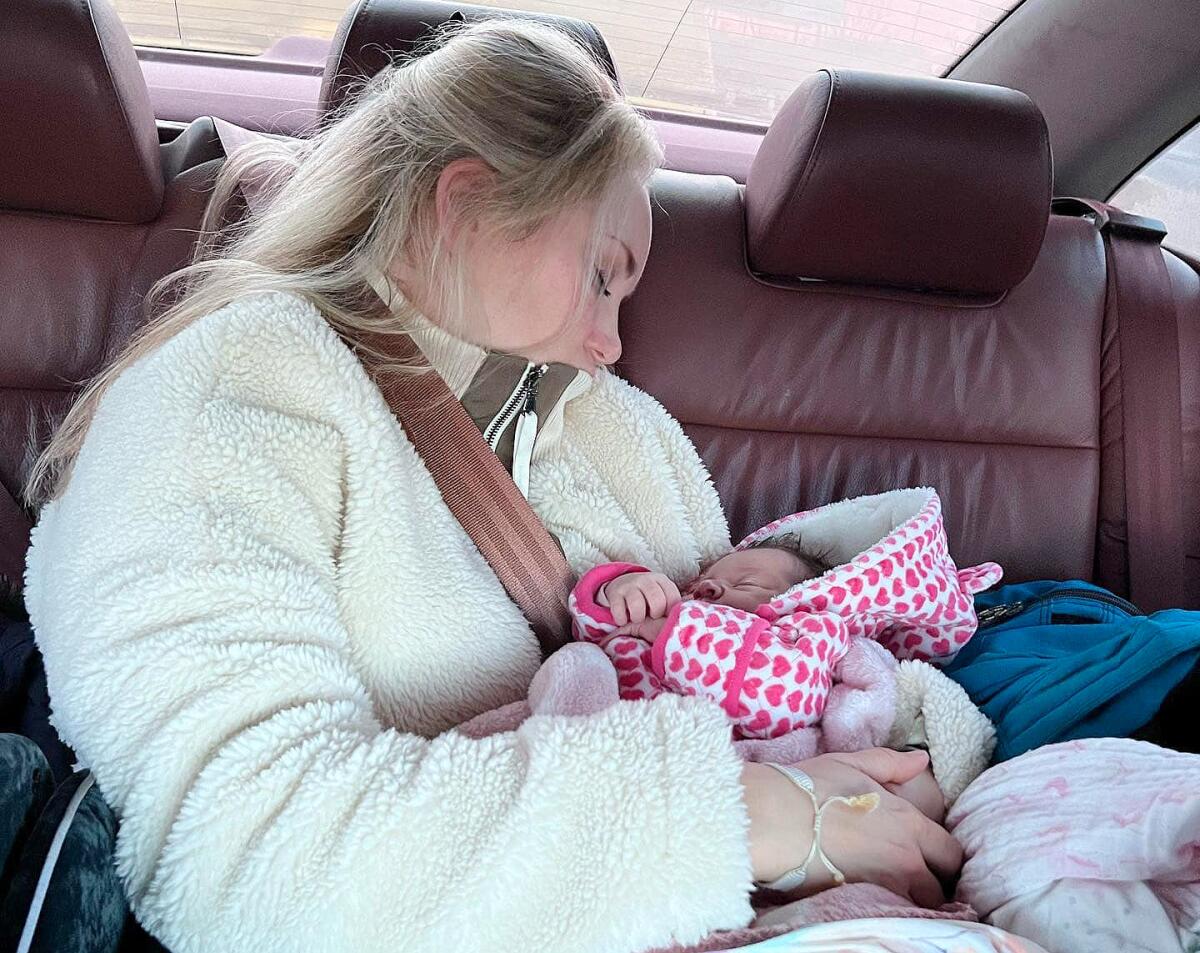
- Share via
Minutes after Jessie Boeckmann started her trek with her 4-day-old infant toward the Ukrainian-Polish border in 30-degree weather, she questioned whether she’d made the right choice.
The 39-year-old Costa Mesa resident held Vivian in a baby carrier, underneath her down jacket, a swaddle and a blanket to block the brutal wind chill. She worried it wouldn’t be enough and Vivian would freeze to death. Her husband, Jacob Boeckmann, carried their two suitcases.
Every 10 to 20 minutes, the couple checked to make sure that Vivian was warm enough and still breathing. Several elderly women who were part of the westward exodus of panicked refugees fleeing the Russian advance shook their heads or shared a disapproving look.
“What have I done to my sweet angel?” Jessie, an ophthalmologist, thought to herself. “This could be the worst decision I’ve ever made.”
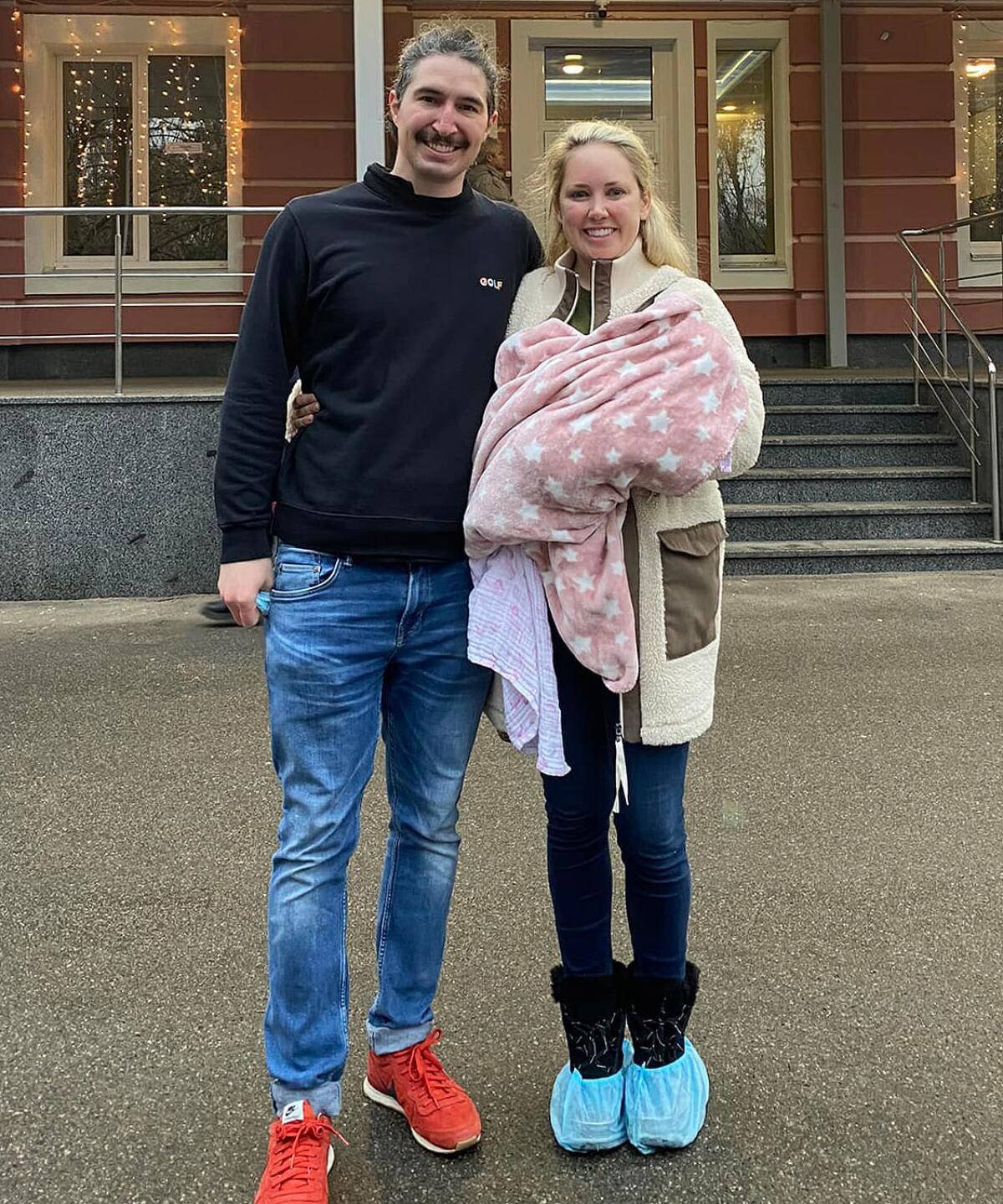
The couple were 26 hours into an ordeal that had begun early Thursday, when artillery explosions rocked the capital of Kyiv and woke them as they slept at a hospital with their newborn.
In 2019, the Boeckmanns, who’ve been married nearly a decade, had had a daughter by a surrogate mother in Ukraine. When they decided to have a second child, they set their sights once again on Ukraine.
Vivian originally was due Feb. 23. The timing made the Boeckmanns nervous. They’d been paying attention to the region’s escalating political tensions. The couple rejoiced when they got word that their surrogate, Lilya, would give birth to their daughter earlier than expected, on Valentine’s Day.
Still, the Boeckmanns contacted the U.S. Embassy in case they found themselves in a tricky situation.
The couple left their Costa Mesa home on Feb. 13 to travel to Kyiv for the baby’s birth the following day. But when they arrived, the doctors said the baby needed more time to gestate and refused to induce Lilya early.
So the couple had to wait, watching as tensions between Ukraine and Russia rose every day and tens of thousands of Russian troops massed on the border for an invasion. The couple knew the situation had taken a bad turn when the airport in Kyiv suspended flights.
“We’re going to have to exit through Poland,” Jacob thought.
Some 500,000 Ukrainians have fled their homeland since Russia invaded last week.
Meanwhile, the couple kept pushing doctors to induce Lilya, the surrogate, so that Vivian would come sooner. But hospital officials wouldn’t budge.
Vivian finally was delivered last Tuesday morning, but the Boeckmanns didn’t get much chance to see her.
They knew they had to move fast to secure her travel documents. Without a birth certificate, the couple wouldn’t be able to legally take her out the country. Also, Vivian wasn’t eating well, so the couple had to hunt down alternate baby formulas to assure she was medically stable. The whole time, the specter of imminent war loomed.
After waking up to the sound of explosions Thursday morning, the Boeckmanns knew it was time to leave. They had Vivian’s birth certificate. But they didn’t have the doctor’s discharge order.
“No, you can’t leave without the doctor seeing the baby,” the nurses said.
“The baby is OK,” Jessie said. Anxious, she knew they had to get out soon.
After 30 minutes of back-and-forth, the couple and Vivian left despite the nurses’ objections.
Their original driver to the border, a man named Alex — who spoke English — could no longer pick them up, but he sent another driver, Val, who spoke only Russian. They communicated with the help of Google Translate, and set out on their journey to the temporary U.S. Embassy, about 340 miles west, in Lviv, near the border with Poland.
It was supposed to be six- to seven-hour road trip, but it became a 27-hour ordeal. It took the couple four hours just to get out of Kyiv. Val zig-zagged across the city, trying to find the fastest way out. They were part of a mass of thousands escaping the city. They passed traffic jams at gas stations and long lines at banks where people tried to withdraw their money.
All the while, Vivian slept. She cried when she was hungry but quieted soon as she was fed. Otherwise, she was silent.
Several times, a woman telephoned Val, yelling in Russian. The couple eventually deduced it was Val’s wife, calling in a panic and begging him to return home.
The Boeckmanns looked at each other but didn’t say much. They felt guilty for taking Val away from his family, but they were scared.
“Is this man going to keep driving us or is he going to leave us somewhere on our own?” Jacob thought to himself.
A few hours into their trek, they got word that the temporary U.S. Embassy had closed. They would have to drive to Poland — about 30 miles northwest. They told Val they’d pay him more, and he agreed to drive them as far as he could.
Once they got to the border, traffic ground to a halt. It was 2 a.m. They slept in the car overnight. It was below freezing, and the couple worried that Vivian might freeze in her car seat. Jessie and Jacob took turns holding the baby and keeping her warm while the other one of them slept for a couple of hours. Traffic moved a bit but then came to a dead stop about eight miles from the actual border crossing.
At 9:30 a.m., Jessie realized they were no longer moving at all.
“Jacob, we need to walk. We’re not going to make it if we don’t walk,” she told her husband.
They passed a sea of vehicles — all them packed with people and possessions. At one point, the fumes from vehicle exhaust became overwhelming. It was colder than they’d expected. They’d left their only shelter behind. Jessie cried.
She realized she’d made the right choice after walking past seven miles of motionless cars and trucks. Ukrainian officials had stopped virtually all vehicles from crossing the border into Poland.
“Oh my goodness, we made it!” Jessie said when they got to the border. Then they saw the crush of people at the gate.
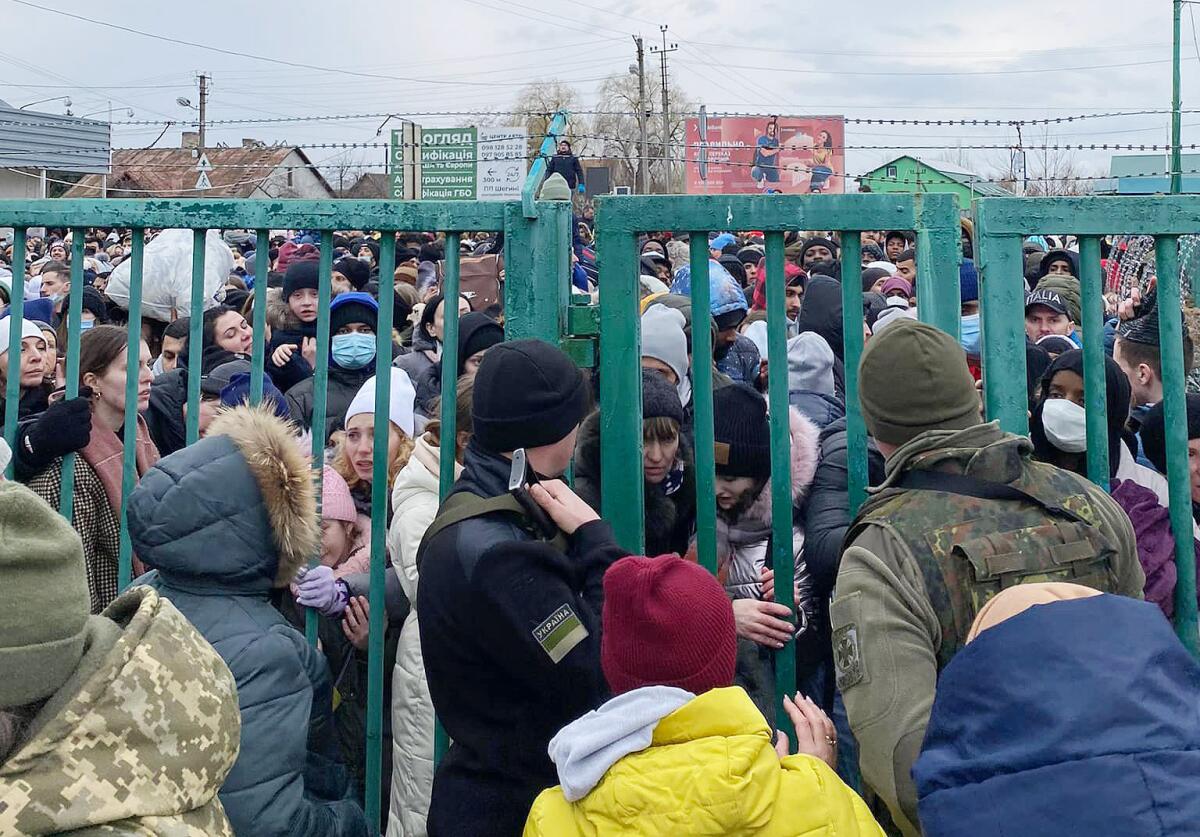
It was chaos. There wasn’t a line, only three Ukrainian border guards with machine guns. Men pushed. Children cried. Women screamed. After waiting 2 ½ hours, the crowd pushed Jessie and Vivian through. The throng pushed so hard that Jessie had to keep her arms out to prevent the crowd from crushing Vivian.
But the crowd wouldn’t allow Jacob through.
“That is my wife and baby. Let me go with them,” the father pleaded. But the mass of refugees still wouldn’t let him pass. He later discovered that border officials weren’t allowing men inside the gates, only women and children.
Jacob had been in communication with U.S. Embassy officials who had told him he’d be able to clear customs and get into Poland with his American passport. Jacob pleaded with the guards who yelled back at him, “Fake passport!” At one point a guard picked him up and threw him against the steel gate.
As Russian air raids started in nearby Lviv, the tension grew. On the other side of the gate, Jessie pleaded with the guards to let her husband through, but they brushed her off and told her to get in line to clear customs.
Then Vivian started to cry. She was hungry. But the bag with the baby formula and water bottles were with Jacob, on the other side of the barbed wire. Jessie’s passport, Vivian’s birth certificate, and baby clothes were also in her husband’s bag.
“I need to feed my baby! I need the baby’s food!” she pleaded with the guards.
Gov. Newsom calls on state pension funds CalPERS and CalSTRS, as well as the UC Retirement System, to divest Russian assets over the war in Ukraine.
With the help of a Ukrainian American family, she persuaded a guard to allow her husband to pass the bag through the crowd and over the gate. She was able to feed Vivian.
Realizing her husband wouldn’t be able to join her, Jessie cried, but got in line. After she cleared customs, she called her mother in Arkansas, who’d been in contact with her state representatives, pressuring them to help her daughter and son-in-law get out.
“Mom, Jacob is stuck on the other side. You have to get him out,” she told her mother.
“I’m on it,” her mother told her. “Everything will be OK.”
Jacob knew his odds were slim, but he persisted. U.S. Embassy officials on the phone told him to keep pleading his case. He showed the female guards who helped his wife pictures of the family together.
“This is my wife and my daughter. Here is my American passport,” he told them.
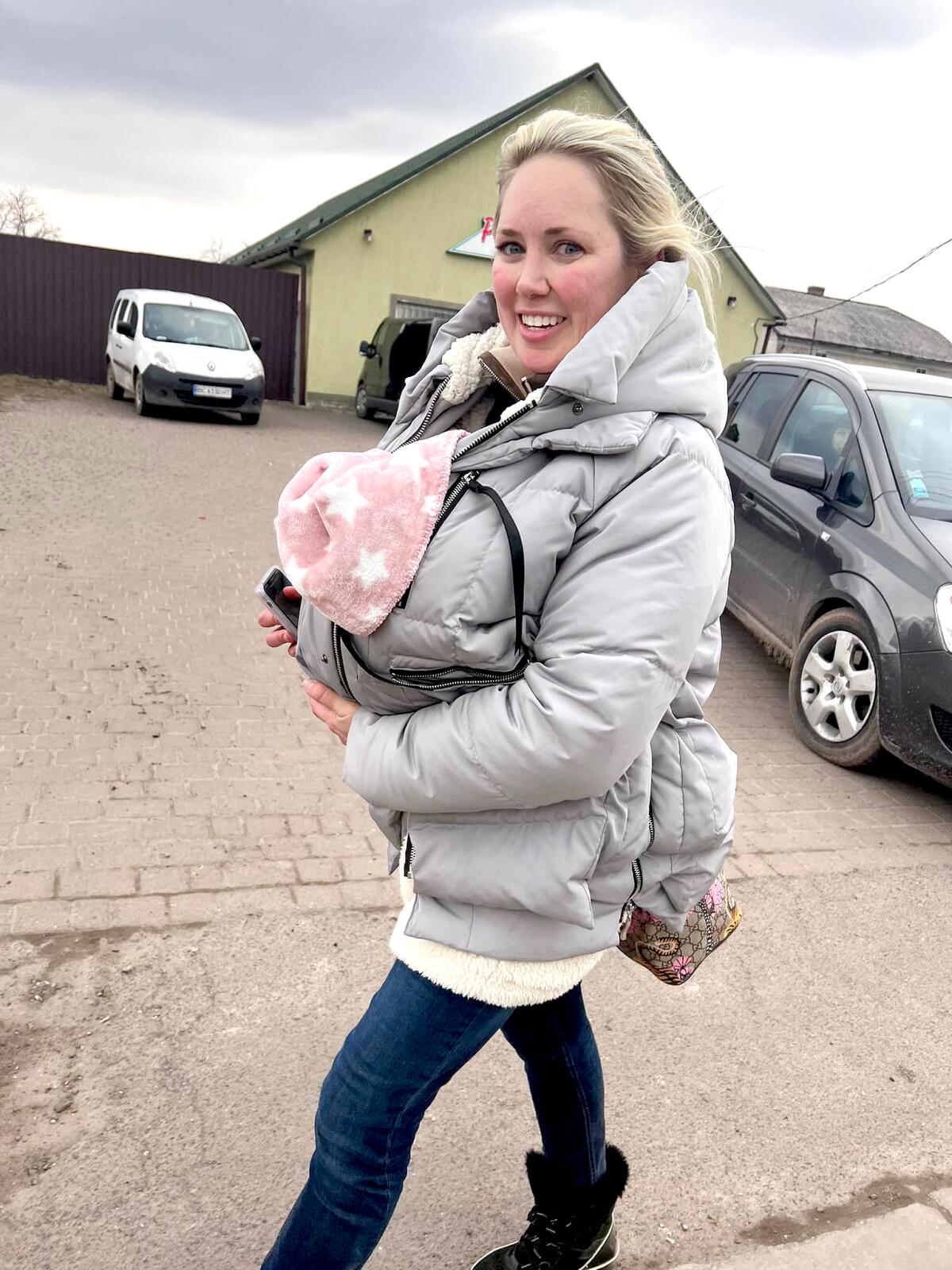
The guards brushed him off once more. Eventually, a lead guard who’d received a photo of Jacob from U.S. Embassy officials told him to head over to the sealed-off automobile entrance, where he was let in.
The Boeckmanns finally reunited at 2 a.m. Saturday, made their way to Warsaw, where they checked into a hotel and were planning leave early Tuesday on a return flight to Los Angeles. They are among an estimated 500,000 people who’ve fled the country so far.
The couple know they are lucky to have gotten out of Ukraine, and said that their hearts break for the Ukrainian people — thousands of whom have taken up arms to resist the incoming Russians — and others who remain in the war-torn country.
On Monday, Jessie received a text from Lilya.
“We are being shot very hard. We are constantly afraid,” the text read. “We are afraid of what will happen next.”
More to Read
Sign up for Essential California
The most important California stories and recommendations in your inbox every morning.
You may occasionally receive promotional content from the Los Angeles Times.
